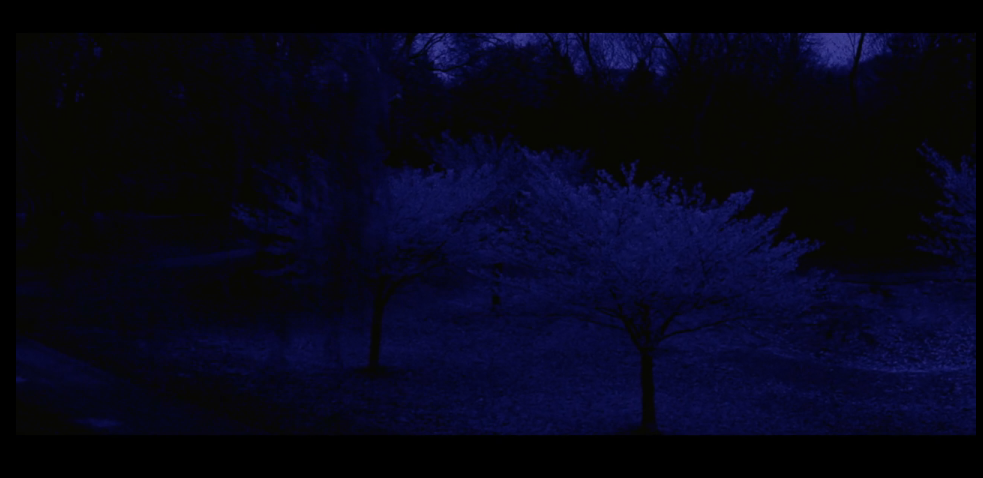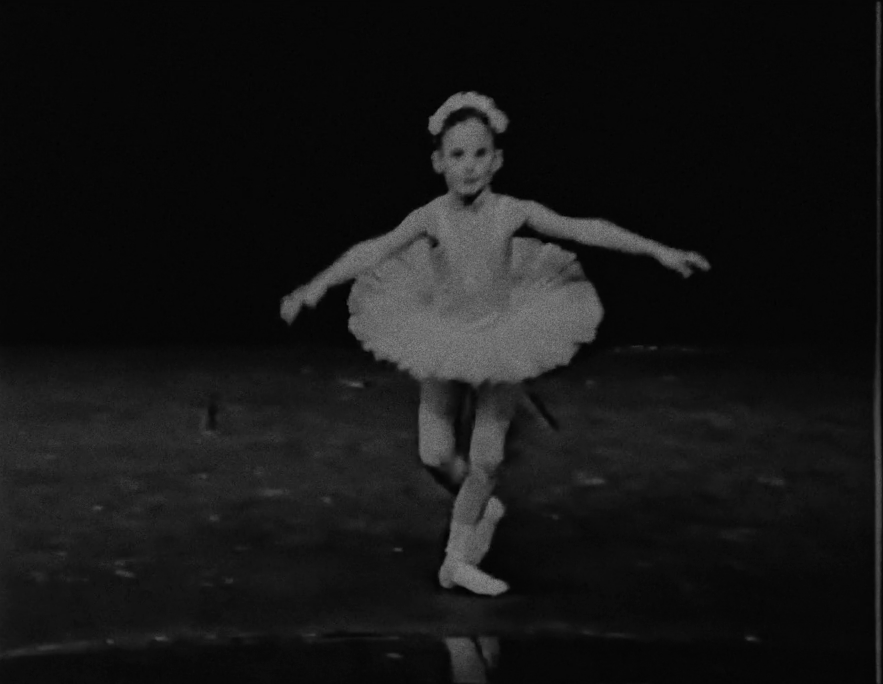Just Cinema: an interview with an anonymous avant-garde filmmaker (Toronto, August 2021)
Mike: Why do you prefer to remain anonymous?
Anonymous: The cult of persona has bothered me for a long time. I have long been an admirer of 18th and 19th century writers who send their manuscripts in this manner. There is a sense that the work is more important than the person. I understand why graffiti artists do it, to evade justice. I can’t be completely “anonymous” since I have to promote my work, but I try my best to honour the work and not me. That’s another reason why I am part of a collective.
I also think that work labelled “anonymous” was and still is discriminated against or is considered less valuable to a lot of people because they can’t promote it with a name attached. To give just one example: “This is by the tormented artist Julián Hernández.” I never felt that I was part of any culture. I realized quickly how negative and useless nationalism was. I don’t want my identity related to the work in any way.
I was quite inspired by Vivian Maier and her use of different accents in order to avoid people “knowing her.” I like the idea that we can hide. I grew up in many, many countries. I was never able to develop friendships or meaningful relationships, Many years later, I was able to relate to and be inspired by Henry Darger’s life.
When I emigrated to Canada 22 years ago, I found Buddhism and it clicked with me and I thought I could relate since it points inwards. My gen-la (Buddhist teacher) was quite inspiring. I left the temple once I realized that I was part of a Buddhist cult and gen-la was on a list of fake Buddhist practitioners issued by the office of the Dalai Lama. But I learned the tenets that have served me since.
Mike: Why make movies in a world already too filled with them? Wouldn’t it be politically more helpful to encourage people to leave a screen world that is taking over our lives?
Anonymous: The screen world has been with us for a long time, from framing our world with books to the present with mobile phones and iPads. From my apolitical perspective and non-activist take, it’s causing more damage than unifying us. I have tried to resist within my means, but found that apathy is the root of the problem. I hope that out of this complex scenario of truth and lies people can start appreciating life or at least try to go outside.
Mike: Your business card describes you, no doubt ironically, as an avant-garde filmmaker. What does it mean to make an avant-garde movie today?
Anonymous: I created a business card as a surrealistic joke. Once I received a business card that read “philosopher” and had to laugh. I think it’s a bit like René Magritte’s “Ceci n’est pas une pipe.” It’s a ”this cannot be happening” sort of feeling.
I am not experimenting per se to achieve something or to be surprised by what I find and then incorporate this into a film. In the past, subjects like politics were inspirations to have conversations about human struggles and injustices, voices that needed to be heard. Politics were also part of French impressionism, to name just one example.
What makes an avant-garde film today is the same as before, it’s something that touches you and makes you think. You are lost in its power and sometimes can’t even express it. You have never seen anything like it before. The newness is very important. Sometimes it can be “too avant-garde,” meaning, that you can’t even connect. Robert Indiana used to say that “for an avant-garde to work it has to be ahead of its time, but not too ahead, so that is out of the realm of understanding.” I think the other myth is that the avant-garde will be appreciated in the future. It might never be appreciated at all.
Mike: Despite a steady outflow of movies, you’ve stopped dealing with film festivals in order to distribute them. Why is that?
Anonymous: Yes, there is an overflow of movies and festivals, 5000 festivals worldwide. I have the impression that most festivals are not big monsters like Cannes, or even recognized fests that have experimental sections organized by people who come from a narrative mindset. In order to have a bigger selection or wider options, they include an experimental section without fully understanding the craft or genre.
The other issue that I have seen for quite some time is some sort of retrogardism among the experimental festivals. There is a sense of purism: “It has to be shot on film!” I understand the value of celluloid, but it seems that they want to hold onto it as a guarantor of quality or “realness” and insist it’s the only way. As well, there is a fear of new ideas. They lack the passion to discover anything new. “We like comfort.” They would rather watch a movie shot on 8mm or 16mm of a rose blooming in slow motion than a HD movie about 13 ways to put a sweater on. They have either a lack of passion or a need to perpetuate the past, unable to receive ideas or ways of seeing that they’ve never touched before. That’s not inspiring to me.
Also, it seems to me that there is an unstoppable need to pay homage to Brakhage and other gods of experimentalism. Brakhage’s spirit was innovation and so was Phil Solomon’s visionary work. But we need to kill our idols and create our own voices with the many tools we have. Images and sounds can be created not only with film but from a drone’s perspective or Artificial Intelligence, to name just a couple of examples. The other issue in my view is that there is a constant analogy exercise, a need to compare new work with the reigning orthodoxies of the past. It’s a weakness of the spirit to compare works. I personally don’t think it’s fair.
Our collective is looking for new ways to promote our work, from art galleries (with their challenges), museums (with a contemporary practice statement) to garages in El Salvador or tents in Burkina Faso. Now there is a collaboration in Japan with artist and composer Takeshi Kawamura. To me, these moves have been quite inspiring even if we have to do the extra work of self-distributing. A lot of distributors don’t even understand the work for reasons already mentioned, so for me it’s a new challenge.
Mike: Could you spare a few words about artist movies today? What characterizes “the field” right now, how has it changed from, say, when you started making movies?
Anonymous: There are a lot of art movie subjects, the challenge is to find them. Personal films are more available with the ubiquitous presence of tools to create them. Many countries have strong productions but the real gems are hard to find. When I see them, they change my perception and inspire me to go on, good work makes all the struggles feel worthwhile.
For quite some time there has been a lot of performance at experimental screenings, creating sounds and actions that flow outside of the frame. I remember an inspiring evening many years ago at the Images Festival that engaged the work of my friend, the Spanish artist Esperanza Collado. I think we are moving and pushing boundaries, going virtual could be the next step.
When I began, it was during the last stage of poetic innovations from the late 70s and 80s. There was a need to find something new. At that time I was living between Paris and Mexico… Cinéma du Look was all the rage in commercial terms but there were a lot of things happening underground. My few years in Mexico were interesting but Mexican experimental films were nonexistent back then. Nobody knew who Teo Hernández was. Things have changed recently. Matthew Barney, Bill Viola, Douglas Gordon and Pierre Huyghe amongst others were individualists at heart and a huge influence on me.
There are social and political subjects that have been present without being seen nearly enough. Here in Canada the Indigenous struggle and the ongoing effects of colonialism continue. LGBTQ2 subjects and preoccupations are creating powerful expressions. There is still an absence of much needed humanism in order to dignify those who have been oppressed and murdered. The teachings of Jane Elliott are more relevant than ever.
Collaborations are also very important today. When I started they were extremely rare. I also think that Surrealism might come back or at the least its oneiric spirit. For me it remains the most important artistic movement of the 20th century.
Mike: What is the difference between the hyper-individualism of artist movie practice and the me-first/me-only ideology of neoliberalism? Both seem to rally around the idea of “personal freedom.”
Anonymous: Absolutely! Though we need this more than ever. We shoot, we cut, we create, it’s the essence of the auteur again. Etymologically, it literally means someone who creates something “new.” The more personal the creation is, the more we might be able to connect with it. We need to be exposed to views we don’t agree with, we can’t all think and do the same things. Movies can create change.
To me, we are shooting in the dark. That mystery drives me. Cinema will continue to show us a world that is not ours. Cinema can show truths and mysteries that intelligence has failed to explain. More senses will begin to appear. In the end there are no experimental films or avant-garde or post-avant-garde films at all. It’s just cinema.


